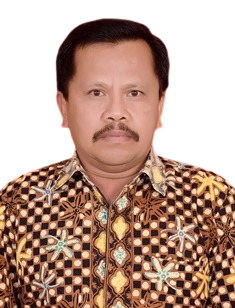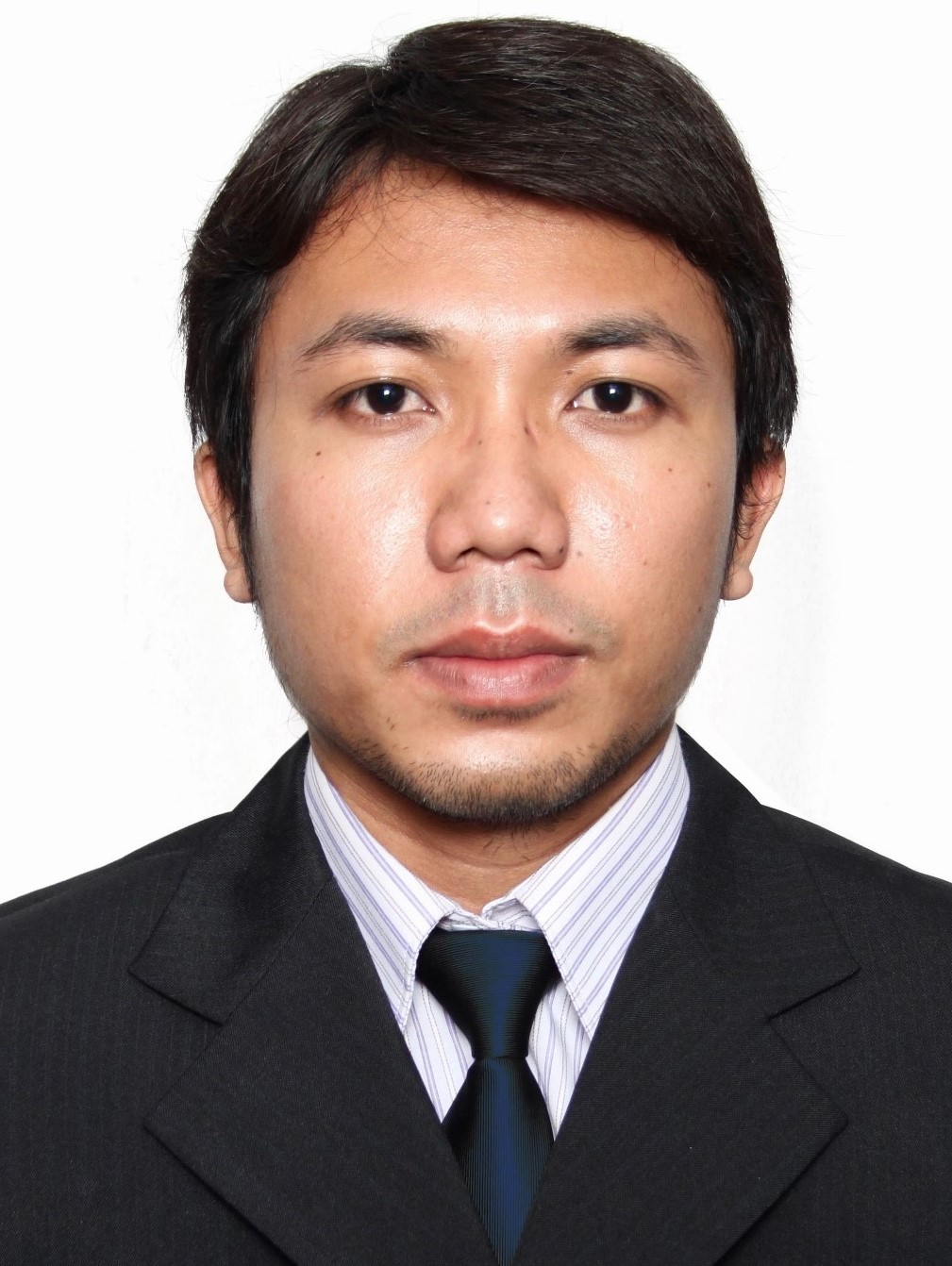Halal tourism: development, chance and challenge
Downloads
The tourism sector is one sector that is able to increase employment and increase economic growth. At present, halal tourism is starting to become popular. This is in line with the increase in Muslim tourists from year to year. The development of halal tourism began to be carried out by various countries, muslim and non-muslim countries. This article will explore the development of halal tourism in several countries, reviewing the concepts and principles of halal tourism, and discuss the chances and challenges.
Abdul Hamid, I. 2010. Islamic compliance in hotel and restaurant business. Paper
presented at the Asia-Euro Conference: Transformation and modernisation in tourism,
hospitality and gastronomy.
Al-Qhardhawi, Y. 1994. Al-Halal wa al-Haram fi al-Islam. Maktabah al-Islami: Bayrut.
Ala-Hamarneh. 2011. Islamic tourism: A Long Term Strategy of Tourist Industries in the
Arab World After 9/11, Centre for Research on The Arab World, 2011. Di akses Oktober 2018 pada http://www.staff.uni-mainz.de/alhamarn/.
Arby, I. 2017. Apa itu Wisata Syariah atau Halal Tourism?. Diakses Oktober 2018 pada http://muhaiminzul.lecture.ub.ac.id/files/2017/02/10.Wisata_Syariah_Halal_Tourism.pdf.
Asazuma, T. 2015. Halal Tourism Activates Japanese Tourism Market. Diakses Oktober 2018 pada http://human.kanagawa-u.ac.jp/gakkai/student/pdf/i11/110320.pdf.
Badan Pusat Statistik. 2010. Statistik Indonesia 2010. Badan Pusat Statistik: Jakarta.
Battour, M., Battor, MM, dan Ismail MN. 2012. The Mediating Role of Tourist Statisfaction: A Study of Muslim Tourists in Malaysia. Journal of Travel and Tourism Marketing. 29(3): 279-297.
Battour, M, dan Ismail, MN. 2016. Halal Tourism: Concepts, Practises, Challenges and Future. Tourism Management Perspective. 19: 150-154
Battour, M., Ismail, MN, dan Battor, M. 2010. Toward a Halal Tourism Market. Tourism Analysis. 15(4): 461-470.
Bhuiyan, MAH., Siwar, C., Ismail, SM, dan Islam, R. Potentials of Islamic Tourism: A Case Study of Malaysia on East Coast Economic Region. Australian Journal of Basic and Applied Sciences. 5(6): 1333-1340.
Bon, M, dan Hussain, M. 2010. Halal Food and Tourism: Prospects and Challenges. Dalam Scott, N, dan Jafari, J (Eds). Tourism in The Muslim World. Emerald Group Publishing Limited: Bingley.
Chookaew, S., Chanin, O., Charatarawat, J., Sriprasert, P, dan Nimpaya, S. 2015. Increasing Halal Tourism Potential at Andaman Gulf in Thailand for Muslim Country. Journal of Economics, Business and Management. 3(7): 739-741.
Din, H. 1989. Islam and Tourism Patterns, Issues, and Options. Annals of Tourism Research. 16: 542–563.
Duman, T. 2011. Value of Islamic Tourism Offering: Perspectives from the Turkish Experience, World Islamic Tourism Forum (WITF, 2011), Kuala Lumpur, Malaysia. Diakses Oktober 2018 pada http://www.iais.org.my/icr/index.php/icr/article/viewFile/13/12.
El-Gohary, H. 2016. Halal Tourism, is it Really Halal?. Tourism Management Perspective. 19: 124-130.
Halal Media Japan. 2016. Japan won first prize as Emerging Halal Destination in World Halal Tourism Awards 2016!.Diakses pada November 2018 pada https://www.halalmedia.jp/archives/19962/japan-won-in-world-halal-tourism-awards-2016/2/.
Halbase. 2015. Halal Tourism. Diakses Oktober 2018 pada http://www.halbase.com/articles?content=11.
Hamdan, H., Issa, ZM., Abu, N, dan Jusoff, K. 2013. Purchasing Decisions among Muslim Consumers of Processed Halal Food Products. Journal of Food Products Marketing. 19(1): 54-61.
Hamzah, A. (2004). Policy and Planning of The Tourism Industry in Malaysia. Paper
presented at The 6th ADRF General Meeting, Bangkok, Thailand.
Han, H., Al-Ansi, A., Olya, HGT, dan Kim, W. 2018. Exploring Halal-Friendly Destination Attributes in South Korea: Perceptions and Behaviors of Muslim Travelers toward a Non-Muslim Destination. Tourism Management. 71: 151-164.
Hashim, NH., Murphy, J, dan Hashim NM. 2007. Islam and Online Imegery on Malaysian Tourist Destination Websites. Journal of Computer-Mediated Comunication. 12: 1082-1102.
Hassan, AR. 2007. Islamic Tourism Revisited, a Note from The Editor. Islamic Tourism.
(2): 1.
Henderson, JC. 2003. Managing Tourism and Islam in Peninsular Malaysia. Tourism Management. 24(4): 447-456.
Henderson, JC. 2010. Sharia-compliant hotels. Tourism and Hospitality Research. 10(3):
–254.
Henderson, JC. 2016. Halal Food, Certification and Halal Tourism: Insight from Malaysia and Singapore. Tourism Management Perspective. 19: 160-164.
Ibrahim, Z., Zahari, MS., Sulaiman, M., Othman, Z, dan Jusoff, K. 2009. Travelling Patterns
and Preferences of The Arab Tourists in Malaysian Hotels. International Journal of
Business and Management. 4(7): 3–9.
Islamic Tourism Centre (2015). Grab a Bigger Slice of Muslim Market. Diakses Oktober 2018 pada http://itc.gov.my/itc-news/grab-a-bigger-slice-of-muslim-tourismmarket/.
Jaelani, A. 2017. Halal Tourism Industry in Indonesia: Potential and Prospect. MPRA Paper No. 76237.
Jafari, J, dan Scott, N. 2014. Muslim World and its Tourism. Annals of Tourism Research. 44: 1-19.
Japan Halal Association. 2012. JAKIM Recognized Certification Body in Japan. Diakses Oktober 2018 padahttps://www.jhalal.com/english.
Kementrian Pariwisata. 2015. Laporan Akhir Kajian Pengembangan Wisata Syariah. Kementrian Pariwisata: Jakarta.
Khan, F, dan Callanan, M. 2017. The "Halalification” of Tourism. Journal of Islamic Marketing. 8(4): 558-577.
Kim, S., Im, HH, dan King, BE. 2015. Muslim Travelers in Asia: The Destination Preferences and Brand Perceptions of Malaysian Tourists. Journal of Vacation Marketing.
(1): 3–21.
Korean Tourism Organisation. 2015. Annual Report of Tourism Statistic. Korean Tourism Organisation: Seol.
Korean Tourism Organisation. 2016. Imagine Your Korea. Diakses pada Oktober 2018 pada http://english.visitkorea.or.kr/enu/index.kto.
Master Card and Crescent Rating. 2016. Global Muslim Travel Index 2016. Diakses November 2018 pada https://www.crescentrating.com/reports/mastercard-crescentrating-global-muslim-travel-index-gmti-2016.html.
Mohamad Taiyab, M. (2009). International Islamic Tourism and Halal Week.
Mohd Salleh, N.H., Othman, R., Mohd Noor, AHS., dan Hasim, MS. 2010. Malaysian
Tourism Demand from The Middle East market: A Preliminary Analysis. Jurnal
Antarabangsa Kajian Asia Barat. 2(1): 37–52.
Mohsin, A., Ramli, N, dan Alkhulayfi, BA. 2016. Halal Tourism: Emerging Opportunities. Tourism Management Perspective. 19: 137-143.
Ota, T., Takeda, T, dan Kamagahara, Y. 2016. The Difference in Movement of Experienced and in Experienced Persons in Japanese Bowing. Energy Procedia. 89: 45-54.
Parc J, dan Moon HC. 2013. Korean Dramas and Films: Key Factors for Their International Competitiveness. Asian Journal of Social Science. 41: 126-149.
Lee, SJ. 2011. The Korean Wave: The Seoul of Asia. Elon Journal of Undergraduate Research in Communications. 2: 85-93.
Pew Research Center. 2017. The Changing Global Religious Landscape. Diakses November 2018 pada http://www.pewforum.org/2017/04/05/the-changing-global-religious-landscape/.
Rahman, RA., Rezei, G., Mohamed, Z., Shamsudin, MN, dan Sharifuddin, J. 2013. Malaysia as Global Halal hub: OIC Food Manufacturers' Perspective. Journal of International Food and Agribusiness Marketing. 25: 154-166.
Razalli, MR., Abdullah, S, dan Hassan, MG. 2012. Developing a Model for Islamic Hotels:
Evaluating Opportunities and Challenges. Working Paper. Universiti Utara Malaysia.
Risi, M. (2012). International Tourism Receipts Surpass US$ 1 Trillion in 2011. UNWTO
World Tourism Barometer.
Saad, H., Ali, B, dan Abdel-Ati, A. 2014. Sharia-Compliant Hotels in Egypt: Concept and Challenges. Advances in Hospitality and Tourism Research. 2(1): 1-13.
Sahida, W., Rahman, SA., Awang, K., dan Man YC. 2011. The Implementation of Shari'ah Compliance Concept Hotel: De Palma Hotel Ampang, Malaysia. 2nd International Conferences Humanities. Singapore: Historical and Social Sciences.
Shakiry, A.S. (2006). The Academy of Islamic Tourism Project. Islamic Tourism, 25 (September–October). Diakses Oktober 2018 pada http://islamictourism.com/.
Salman, A, dan Hasim MS. 20120. Factors and Competitiveness of Malaysia as a Tourist Destination: A Study of Outbound Middle East Tourist. Asian Social Science. 8(12): 48-54.
Samori, Z., Md Salleh, NZ, dan Khalid, MM. 2016. Current Trends on Halal Tourism: Cases on Selected Asian Countries. Tourism Management Perspective. 19: 131-136.
Shafaei, F, dan Mohamed, B. 2015. Malaysia's Branding as an Islamic Tourism Hub: An
Assessment. GEOGRAFIA Online Malaysia Journal of Society and Space. 11(1): 97–106.
Syed Marzuki, SZ., Hall, CM, dan Ballantine, P. 2012a. Restaurant Manager and Halal Certification in Malaysia. Journal of Foodservice Business Research. 15(2): 195-214.
Syed Marzuki, SZ., Hall, CM, dan Ballantine, P. 2012b. Restaurant Managers' Perspectives on Halal Certification. Journal of Islamic Marketing. 3(1): 47-58.
Sugiyama, S. 2014. Consideration of The Nature of Halal and Food Safety: In Order to Greet The Tourist from ASEAN Countries. JAFIT International Tourism Review. 21: 129-136.
Tajzadeh, NAA. 2013. Value Creation in Tourism: An Islamic approach. International
Research Journal of Applied and Basic Sciences. 4(5): 1252–1264.
Timothy, D., & Iverson, T. (2006). Tourism and Islam: Considerations of Culture and Duty.
dalam D. Timothy, dan D. Olsen (Eds.), Tourism, Religion and Spiritual journeys.
London: Routledge.
The World Halal Travel Summit. 2015. Halal Tourism- An Overview, The World Halal Travel Summit and Exhibition 2015. Diakses pada November 2018 pada http://whtsexpo.com/.
Wahidati, L, dan Sarinastiti, EN. 2018. Perkembangan Wisata Halal di Jepang. Jurnal Gama Societai. 1(1): 9-19.
Widagdyo, KG. 2015. Analisis Pasar Pariwisata Halal di Indonesia. The Journal of Tauhidinomics. 1(1): 73-80.
Yonhap. 2017. Korea's Tourism Industry Moving to Accommodate Rise in Muslim Visitors. Diakses pada Oktober 2018 pada http://english.yonhapnews.co.kr.
Yusof, SM, dan Shutto, N. 2014. The Development of Halal Food Market in Japan: An Exploratory Study. Procedia-Social and Behavioral Sciences. 121: 253-261.
Zamani-Farahani, H, dan Henderson, JC. 2010. Islamic Tourism and Managing Tourism Development in Islamic Societies: The Cases of Iran and Saudi Arabia. International Journal of Tourism Research. 12: 79-89.
Authors who publish with Journal of halal product and research (JPHR) agree to the following terms:
- The journal allows the author(s) to hold the copyright of the article without restrictions.
- The journal allows the author(s) to retain publishing rights without restrictions.
- The legal formal aspect of journal publication accessibility refers to Creative Commons Attribution (CC BY) 4.0 International License










